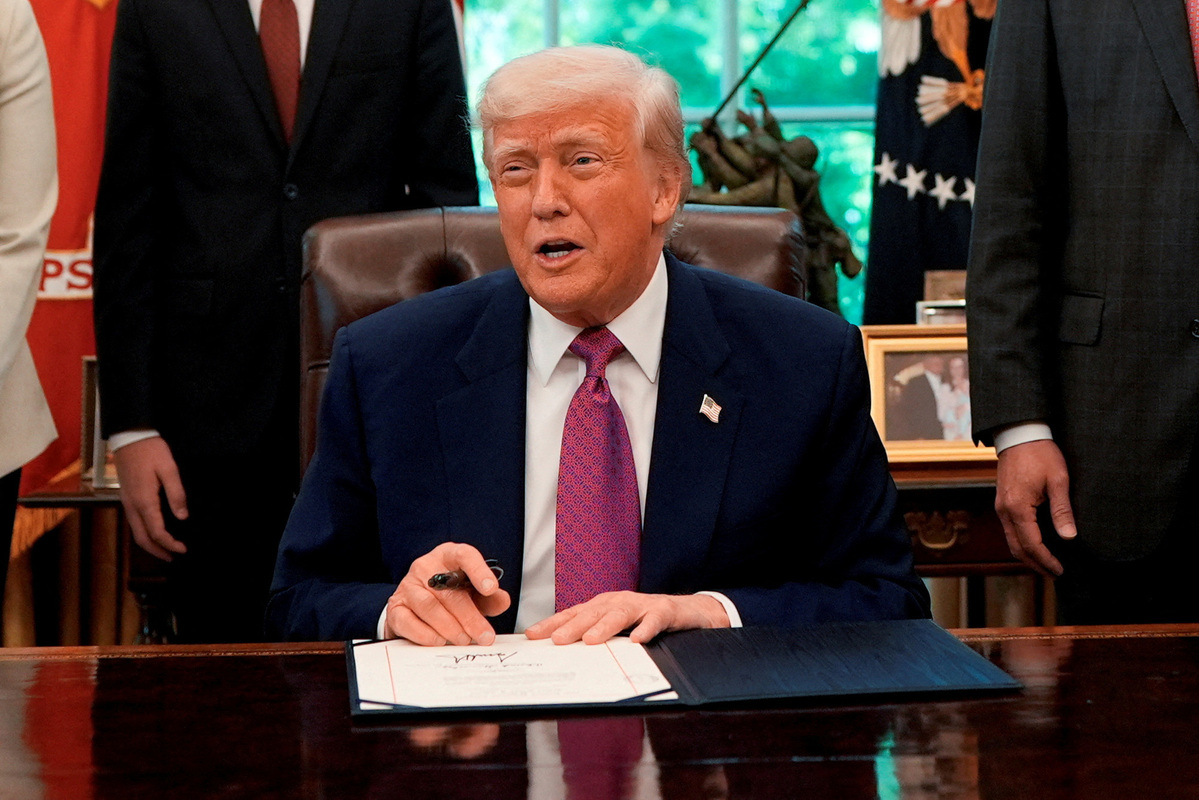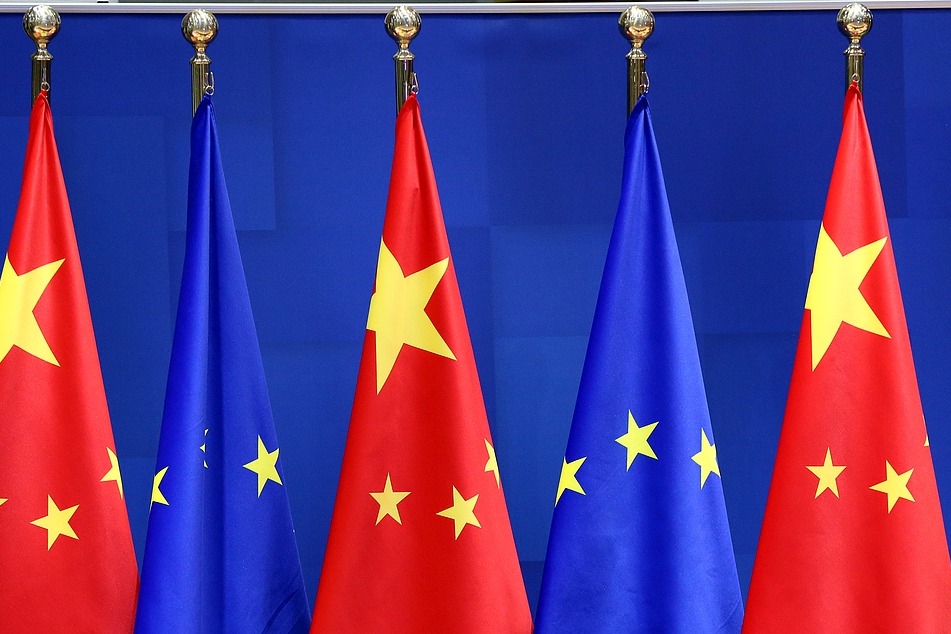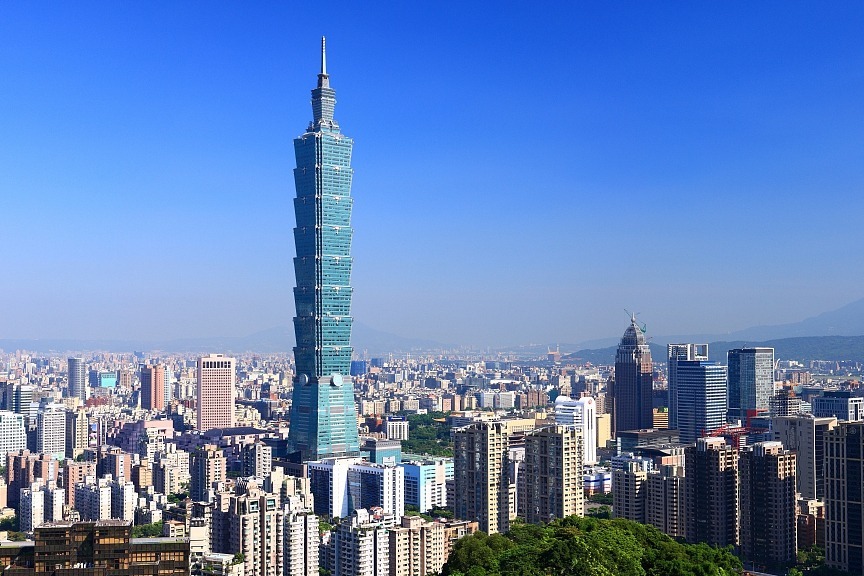MAGA plan to fail without China: Experts


US President Donald Trump ran his reelection campaign on the slogan that he wants to "Make America Great Again" and most of his policies whilst back in office have been directed at putting the country first, lessening its reliance on foreign supply chains, securing the border and reigniting jobs.
The president set out the specific details on what he wants to achieve in an Executive Order on Jan 20, called President Trump's America First Priorities. It is a blueprint on how to reinvigorate various industries.
But experts suggest that the nature of the China-US trade relationship is so intertwined that it will be hard to immediately decouple.
And keeping the high tariff in place on China would upend US businesses, raise prices on US consumers and unsettle the international economy.
Thomas Fullerton, a US economist and economics professor at the University of Texas at El Paso, told China Daily that imports from China and other economies are crucial for many sectors as "the United States does not make enough of those items to satisfy total demand for those products and imports make up the difference".
US farmers, for example, rely heavily on exporting products to China which buys soy, livestock and corn.
In Trump's first term, amid the trade tensions, farm bankruptcies soared by 24 percent from 2018 to 2019 resulting in a $27 billion loss.
Trump issued a $28 billion tariff bailout package. But a repeat of those hard times could devastate farms in MAGA territory especially as many have long-standing relationships with Chinese companies.
Jim Sutter, CEO of the US Soybean Export Council, said deep ties exist between the US and China.
"US soy farmers and our US Soy Export Council has been doing work in China since 1982," he told China Daily. "We've got a lot of history there and strong relationships with companies."
Since taking office, Trump has delighted supporters who say he is "doing what he said he'd do" by rolling out strict immigration policies, mass deportation of illegal migrants and dismantling diversity policies.
But the way in which the US has worked with China for decades will make it difficult to go it alone on trade.
Another MAGA goal is to "unleash American energy", including mining and processing of nonfuel minerals. But the US relies on China for processing and refining several important minerals, even though it has its own mining resources.
While the US does mine some rare earth elements, it also exports a large portion of them to China for processing as China is a leader in global rare earth refining.
MAGA wants to "empower consumer choice in vehicles, showerheads, toilets, washing machines, light bulbs and dishwashers."
Heavy reliance
But data show that over 57 percent of all showerhead imports originated from China. And, last year, the bulk of imported washing machines came from China, according to the United Nations Commodity Trade Statistics database on international trade.
On livestock, the US exported $1.6 billion worth of beef to China in 2024. But this year, sales have stalled amid trade woes.
China has diversified its purchases and has increased trade with Australia according to data from research firm Meat & Livestock Australia.
Australian grain-fed beef exports to China have gone up nearly 40 percent in 2024, the firm found, with 21,885 tons shipped in February and March, ABC News Australia reports.
The US administration did, however, strike its first tariff deal with the UK on May 7 which will see Britain allow up to 13,000 metric tons of beef imports from the US tariff-free.
The US, the largest goods importer in the world, received $4.11 trillion worth of items from international sources in 2024, the Office of the United Trade Representative found.
Its total goods trade with China was an estimated $582.4 billion last year. US goods imports from China totaled $438.9 billion, up 2.8 percent or $12.1 billion from 2023, USTR said.
However, the quest to make businesses great again by using tariffs on Chinese goods led Gene Seroka, executive director of the Port of Los Angeles, to warn that shipments at LA's port were down "about 35 percent compared to the same time last year."
The National Retail Federation's Vice-President of Supply Chain and Customs Policy Jonathan Gold monitors ports and cargo volume.
Gold told China Daily that the "potential impacts (of tariffs on ports) could include less inventory and fewer choices for consumers as well as increased prices, especially at small retailers."
Thousands of US jobs also depend on the import and export business.
All of the country's trade partners will soon have to come to the bargaining table, as the paused reciprocal tariffs enacted on "Liberation Day" on April 2, will begin again in July.
belindarobinson@chinadailyusa.com
































